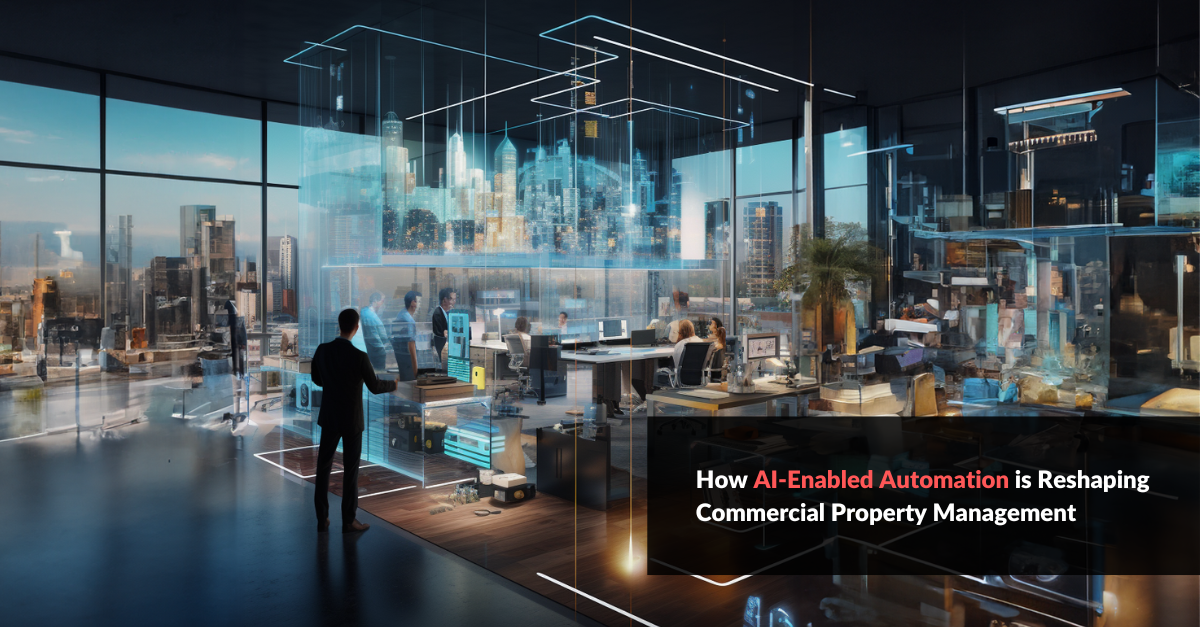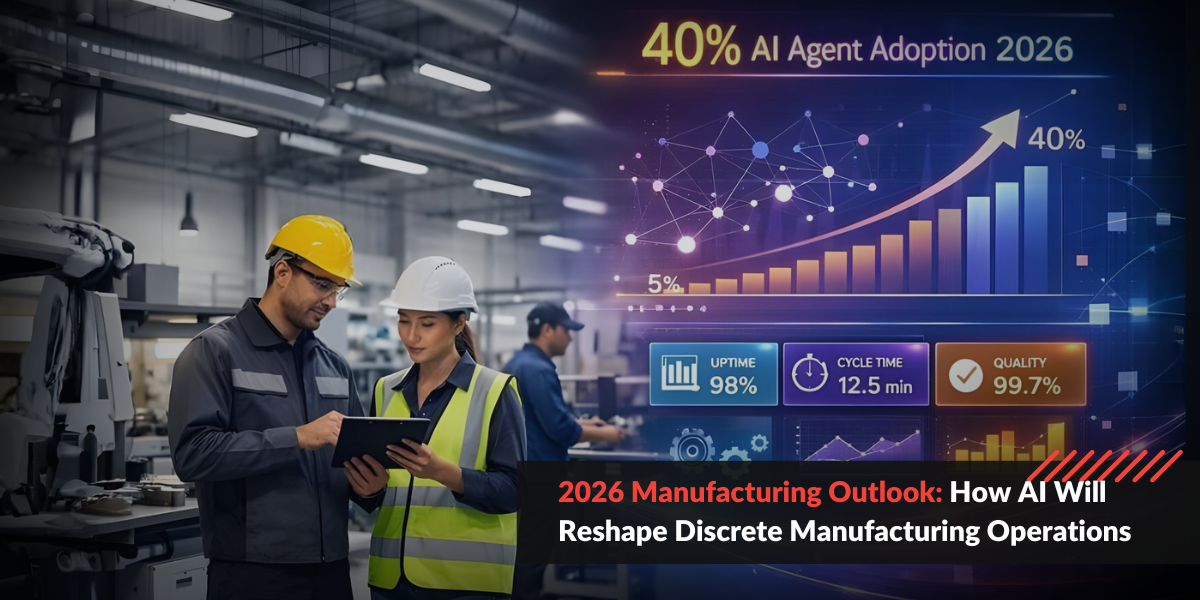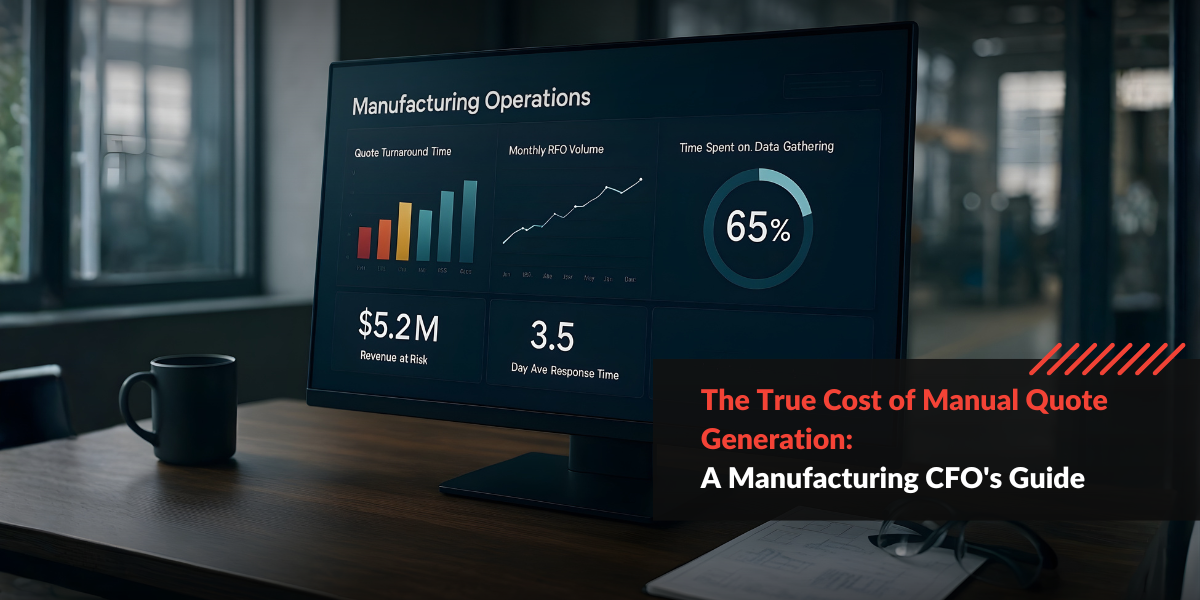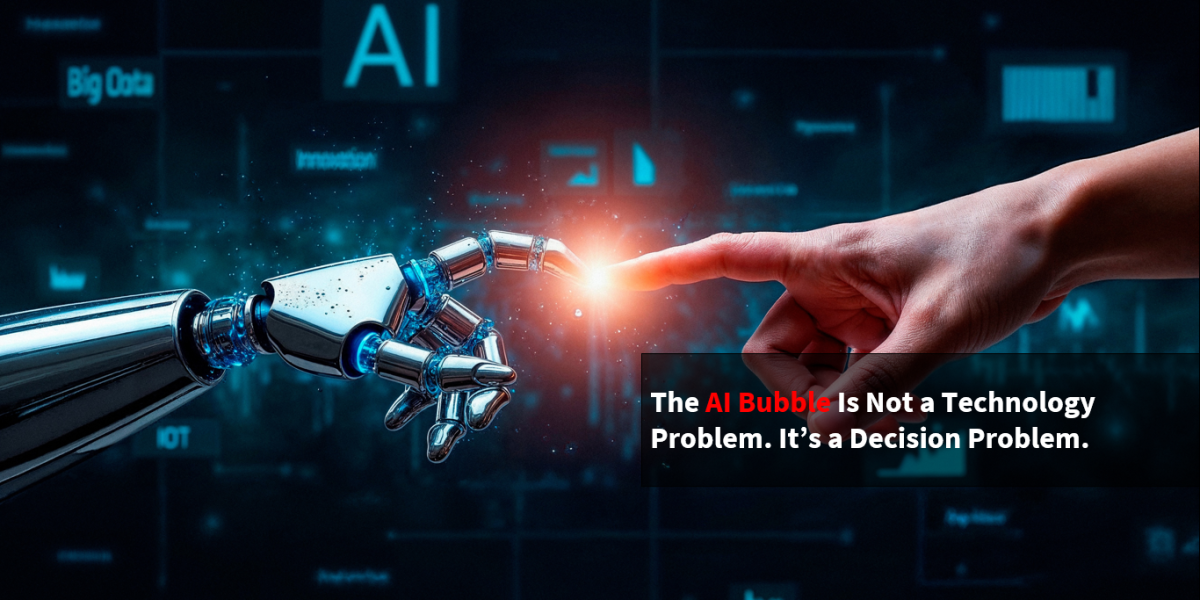As a property manager, you know the daily grind all too well. Endless lease agreements to review. Maintenance records piled sky high. Financial documents demanding nonstop data entry. It often feels like you’re walking uphill just to keep basic operations going.
But what if there was something to lift some of these burdens from your shoulders? That’s where AI-enabled Automation comes into the picture. This amazing technology can digitize and analyze your lease documents for you, taking a marathon task and turning it into a sprint. It can streamline maintenance and financial paperwork that used to swallow up your days into automated workflows completed in minutes.
With AI Automation taking care of the busy work, you’re free to focus on the meaningful stuff – building tenant relationships, fine-tuning your portfolio strategy, and taking your business to the next level. So, leave the grunt work to your automated systems and get ready to tackle your management role with clarity and strategic vision. Let’s understand the challenges and how automation can be helpful in more detail.
Understanding the Pain Points of Traditional Property Management
In commercial real estate, property management encompasses a wide range of responsibilities essential for maintaining and enhancing the value and profitability of real estate investments. However, traditional methods of managing these properties often encounter several pain points that can hinder efficiency and effectiveness. Let’s delve into these challenges in more detail:
Operational Inefficiencies
One of the primary challenges in traditional property management is the significant time and effort spent on repetitive tasks. This includes various administrative duties such as Lease Administration, Tenant Screening and Onboarding, managing rent payments, invoicing, and financial reporting, handling requests and coordinating with service providers, Sourcing and managing relationships with service vendors, and much more are often compounded by outdated processes and high employee turnover, especially in finance departments. Such inefficiencies can lead to wasted resources and reduced productivity.
Manual Data Entry and System Disconnections
Many property management operations rely on manual data entry, leading to a higher risk of errors and inefficiencies. Additionally, the use of disconnected systems that do not communicate with each other further exacerbates this problem, creating data silos and making it difficult to gain a holistic view of property management operations.
Reliance on Paper-Based Procedures
The real estate sector, particularly in the context of property management, often still depends heavily on paper-based procedures. This includes tasks like signing paper leases, mailing rent statements, and processing paper checks. Such reliance not only slows down processes but also increases the likelihood of errors and data loss.
Challenges in Outsourcing Back-Office Accounting
While outsourcing back-office tasks, such as accounting, can offer relief and free up internal resources, it comes with its own set of challenges. Finding the right partner who understands the specific needs of the real estate industry and can effectively integrate automation with your existing systems is crucial.
Lease Management Complexities
Managing leases is a critical part of property management, yet it’s often fraught with complexities and potential for financial loss. This is due to discrepancies between lease agreements and actual billing or collection processes. Conducting thorough lease audits and abstraction can help in identifying these discrepancies and ensuring compliance with contractual terms.
Tackling Unique Property Management Issues
Every property has unique needs and challenges, such as upgrading amenities, managing maintenance costs, and enhancing tenant retention. Implementing individualized property management plans tailored to the specific needs of each property can help maximize investment potential.
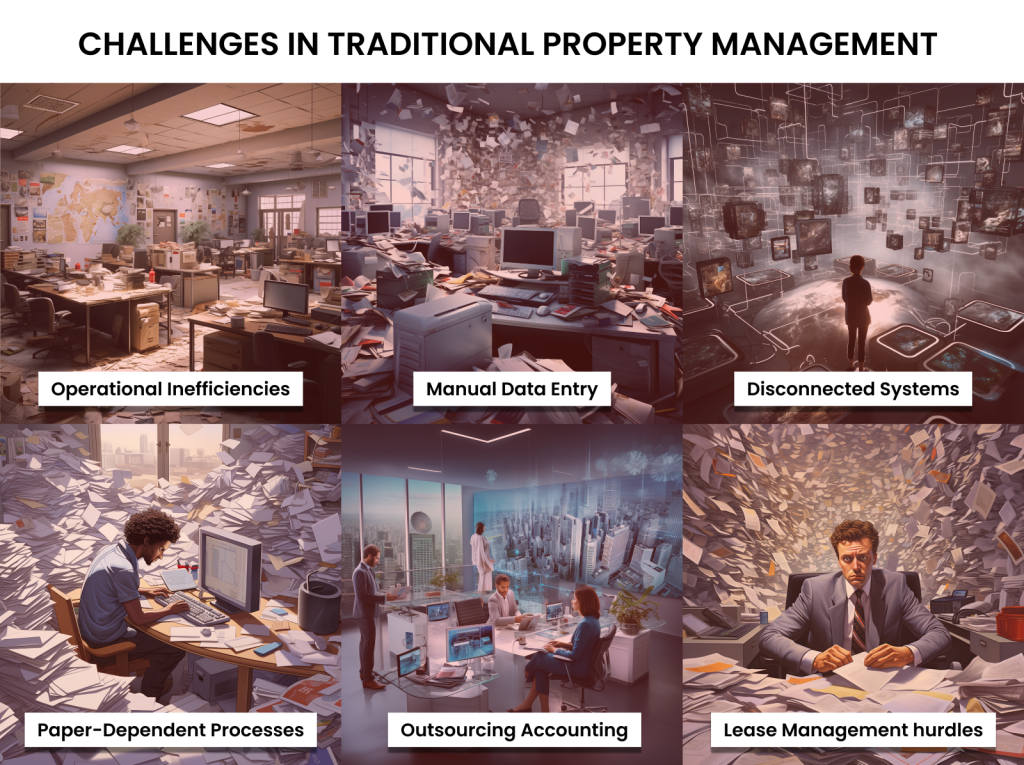
The Rise of AI Automation in Commercial Property Management
In the world of commercial property management, the advent of AI-enabled automation marks a paradigm shift, a leap from manual to intelligent management. This revolution isn’t just about automating routine tasks; it’s about transforming complex, multi-layered processes into streamlined, efficient operations.
In 2022, the value of the property management software market stood at $1.73 billion, a figure that’s projected to climb to $2.71 billion by 2030. This growth trajectory suggests an annual compound growth rate of 5.73% over the forecast period. Dominating this market, North America boasts a substantial revenue share of 65.58%, underscoring its leading position in the adoption and development of property management technologies.
The above stat reflects a significant and steady demand for property management automation solutions. This growth is indicative of the industry’s recognition of the benefits of automation in enhancing operational efficiency, reducing costs, and improving tenant services.

Top 8 Automation Opportunities in Commercial Property Management
Maintenance Request Management
Fielding repair requests from tenants can become time-consuming without a streamlined system, leading to delays that impact tenant satisfaction. Automating the maintenance request process with user-friendly apps and automated routing/scheduling tools can significantly improve response times. This gets issues resolved promptly, enhancing the tenant experience.
Rent Collection
Chasing down late rent payments takes up valuable time. Automated rent collection systems simplify payment tracking with automatic reminders and mobile apps to accept online payments. This makes it easier for tenants to pay on time, while property managers benefit from predictable cash flow unburdened by administrative hassles.
Lease Renewal
Promptly contacting tenants about lease renewal is crucial for retention, but manual outreach is not always consistent. Automating lease renewal notices and prompts ensures tenants get timely options to renew without letting the date sneak up on them. This proactive approach keeps more tenants renewing rather than leaving.
Tenant Onboarding
The tenant onboarding process often involves extensive paperwork and documentation. Digitalizing this with online platforms streamlines form submission, document uploading, and information collection into one efficient workflow. This creates a tenant-friendly experience from day one.
Tenant Communication
Keeping tenants informed requires consistent communication on a scale. Automated systems allow property managers to schedule automated notifications for maintenance updates, community news, renewals, surveys, and more. These fosters open engagement with tenants.
Expense Tracking and Reporting
Monitoring property management expenses without automation can quickly become an accounting headache. Automated expense tracking and consolidated reporting simplifies the data collection process. This provides easy access to accurate financial insights for smarter decision-making.
Document Management
Tracking lease agreements, addendums, and other critical documents is a major organizational challenge without digital systems. Cloud-based document management solutions enable easy and secure document access, updating, searching, and editing by the property management team across locations.
Vendor Management
Managing vendor relationships often relies on scattered records and intuition without automation. Centralizing interactions through an automated vendor management system standardizes records of quotes, orders, contracts, and payments. This creates efficiency gains for the property manager.
AI-enabled automation in commercial property management offers more than just technological advancement—it represents a strategic pivot towards more intelligent, efficient, and responsive operations. For those in the commercial real estate sector, the integration of AI is not merely an upgrade; it’s an evident shift that aligns with the evolving demands of tenants and the competitive landscape.
The future of commercial property management is undeniably digital. As we look ahead, the adoption of AI stands out as a critical strategy for those aiming to lead in innovation and service excellence. This is an invitation to industry leaders to explore and harness the potential of AI-enabled automation, positioning themselves at the forefront of a smarter, more dynamic approach to commercial property management. You can get started with your automation journey with our 7-series Guide, starting with Understanding Intelligent Process Automation: A Guide for Business Leaders
Adapting AI-enabled solutions now means staying ahead in a rapidly evolving industry, ensuring that properties are not just managed but are managed with foresight and adaptability at their core. Get in touch today to learn more about how you can integrate AI-enabled automation with your existing system for more streamlined property management.

